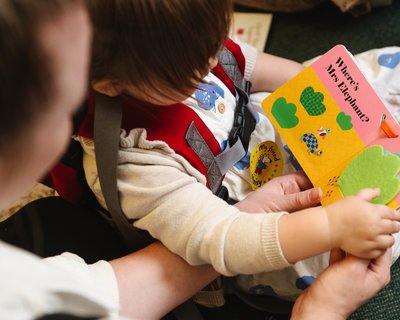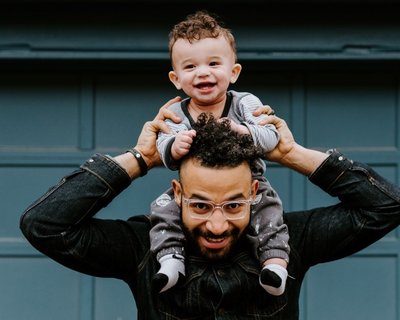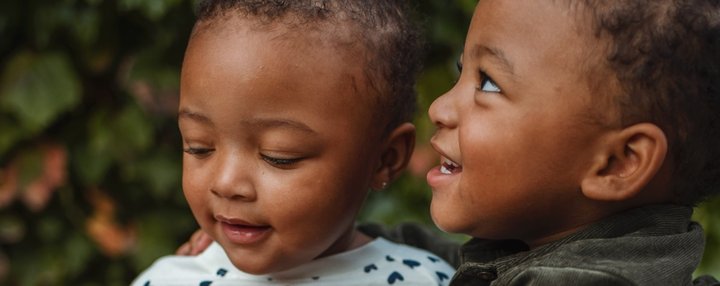A child’s earliest years are crucial to their development and life chances.
However, in 2023 over 185,000 5-year-olds started school without the literacy, communication and language skills they needed to thrive. Without this firm foundation not only will their learning, confidence and wellbeing suffer in their early school days, but they are much more likely to struggle with their GCSEs and be unemployed by their 30s.
Children experiencing poverty are most likely to be affected.
We don't want where you are born and how wealthy your family is to determine your story.
Help us to empower parents
New research about the home learning environment launched in October 2024 demonstrates that parents can play a vital role in supporting their children’s literacy at home. What parents do in and outside the home to support their child’s learning has a powerful impact on shaping a child's early language development, in terms of educational outcomes as well as wellbeing.
However, our research also shows a decrease in parents' daily engagement in activities known to support early language development, including chatting, playing and reading together.
We know parents only want the very best for their children and want to give their children the best start in life. They are under enormous amounts of pressure and the joint impact of the pandemic, cost-of-living crisis and cuts to early years services funding are likely to have played a significant role in the decline.
Together, we can make sure Early Words Matter
Our Early Words Matter campaign urgently calls on local organisations, the business community, volunteers, community leaders and government to take practical action to empower families with more opportunities, practical programmes for families, and resources and training for the early years sector.
Together, we can equip and support parents and carers to build their children's early language, communication and literacy skills.
But we've all got a part to play to change these young children's life stories:
Early Words Matter for families
Talking to your baby and responding to their babbles will help build their communication skills from their earliest moments. We have created FREE Little Moments Together cards with lots of playful tips and conversation ideas to help you chat to your 0 to 2 year old throughout your everyday moments.

Early Words Matter in education
How we support practitioners
How businesses can get involved
Find out more
